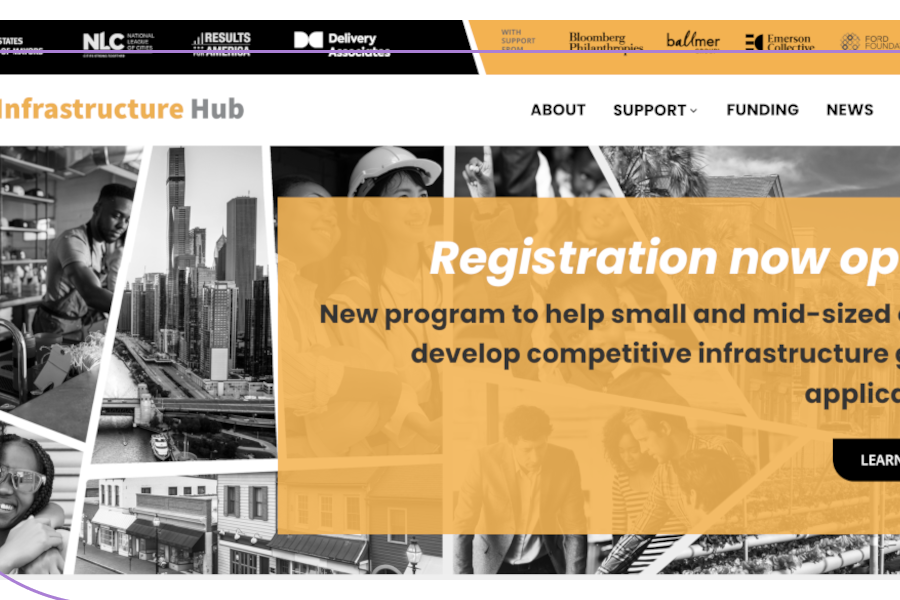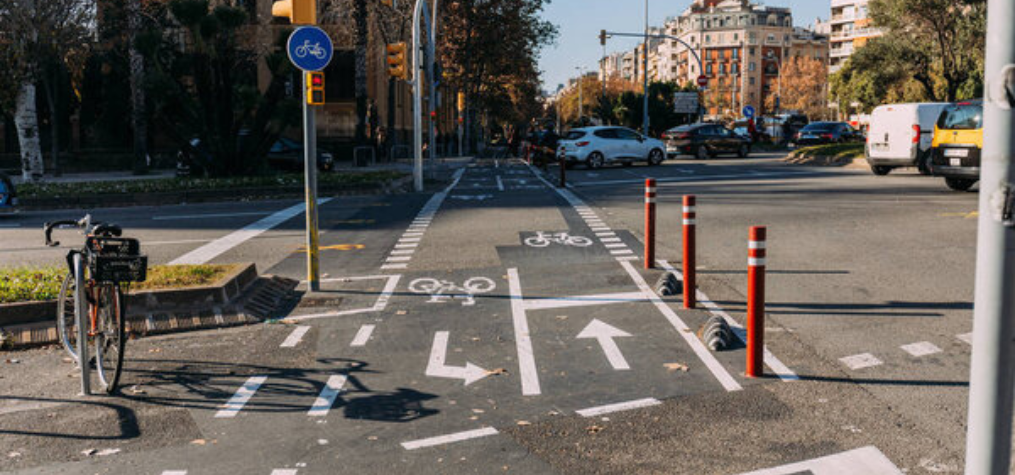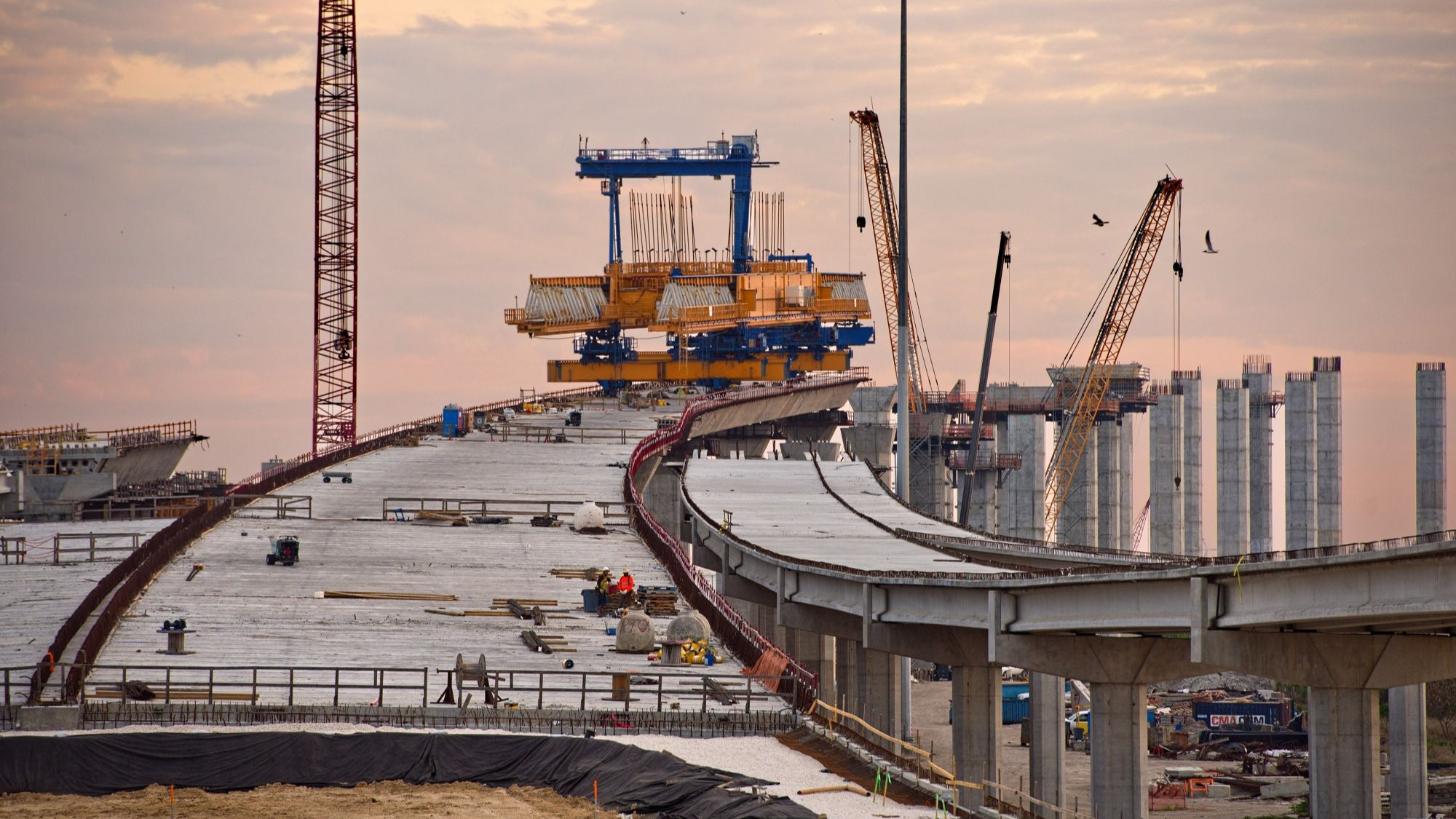NLC Local Infrastructure Hub workshops to help small cities win big

By KATE COIL
TT&C Assistant Editor
With the final push to award unprecedented levels of federal infrastructure funding underway, the National League of Cities (NLC) is hoping to help smaller cities get a bigger piece of the pie.
Katie Dailinger, director of the NLC Local Infrastructure Hub, said the hub’s free Grant Application Bootcamps are designed to help small to mid-sized cities connect with the best grant opportunities for their community and learn how to develop competitive grant applications for the future. Dailinger discussed how cities can participate in this program at the 84th Annual TML Conference in Knoxville.

“When the Bipartisan Infrastructure Law was passed two-and-a-half years ago, it made more than $1 trillion available for communities all around the country,” she said. “We wanted to make sure it was not just big cities getting this funding but also the medium-sized cities and small cities had a chance at this funding. We wanted to shift who was applying, who was winning that funding, and improve the quality of those applications. We want every community in the country to have transformational, safe infrastructure.”
The program offers free, virtual classes for an hour once a week over three months. Participants attend larger webinars featuring subject matter experts and federal officials. Sessions are recorded so those who cannot participate in the session live can watch at their leisure.
“Each week, we dig into a different topic,” Dailinger said. “We may have a member of a federal department talking about what they want to read in a grant application or why this grant program is important. It may be a budget expert who discusses how to create a budget for the project, how to find a match, and here are some things to think about if a project requires a match. We often create a budget template for your city to fill out so you can slide that right in with the application.”
Participants also have access to coaching sessions to work on specific questions with experts, on-demand one-on-one consultations with content experts, and toolkits and templates to provide resources cities can use to strength core components of their applications.

“A lot of our participants say the one-on-one consultations are the most valuable part of their time, because it’s like having a free grants consultant,” she said. “You can ask them anything you want to about the grant. We have people who come in with a problem in their community, a project idea to solve it, but aren’t sure what is the right grant. Those experts can then determine what is the best grant for that project. We also have people who come in with a draft application and ask if it can be reviewed before they submit it. We have people who are just getting started, people who are almost finished, and everything in between.”
As applications for federal grants often require a great deal of data, Dailinger said the Local Infrastructure Hub created a Data Dashboard to help cities make their applications more compelling. Information workshops teach participants how to both use this dashboard and how to use their own data to tell better stories on their applications. Examples of past successful applications and case studies of winning projects are also available on the Infrastructure Hub’s website.
In the past 21 months, the program has provided strategic guidance and technical assistance to 921 municipalities in every state, with 65% of those cities having a population of 25,000 or less. The program has also helped more than 90 cities win $225 million in federal grants to date.

“These are smaller cities winning infrastructure dollars,” Dailinger said. “Most small cities never go after federal infrastructure dollars. They often rely on regional projects or for someone else to help them go after federal dollars. Our program is trying to show that smaller cities can go after federal dollars and can win them. We have had grant winners with populations under 10,000.”
Additionally, the program has trained 1,664 city staff members to have the tools and skills they need to navigate federal grant programs in the future. Dailinger said she has heard feedback from city officials who may not have won the grant they were working on for the program, but have
“The vast majority of our cities who participate and the overwhelming majority of cities who win have no grants writer on their team, no grants consultant, and don’t have anyone on their staff with a history of writing grants,” she said. “We are teaching people who have never written a grant before how to write a grant. Even if you don’t win this grant, what we’ve hopefully left behind is grants experience in your city team that you can take to other grants.”
Four upcoming workshops will focus on the Rebuilding American Infrastructure with Sustainability and Equity (RAISE) funding, Building Resilient Infrastructure program, Flood Mitigation Assistance grant, and IRA Elective Pay program.
Learn more about the NLC Local Infrastructure Hub and how to register for workshops.
